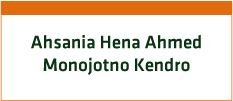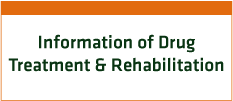Research Agency to Support the Roll-Out of “Strong Families” – a Family Skills-based Programme as part of UNODC Project on Countering the Threats of Drugs and Crime in Cox’s Bazar
Project Introduction: The United Nations Office on Drugs and Crime (UNODC) Regional Office for South Asia (ROSA) is currently implementing a project in Bangladesh with an aim to build knowledge, capacities and resilience to counter the threats of drugs and crime in Cox’s Bazar. Through this project, UNODC aims to address the drugs and crime challenges in southeast division of Bangladesh, bordering Myanmar, specifically Cox’s Bazar. The project aims to strengthen existing efforts of the Government, NGOs and UN agencies in Cox’s Bazar by generating evidence on drugs and crime and on safety challenges, and by building capacities of families, caregivers, government and criminal justice interlocutors to respond to such challenges and create awareness among affected populations.
Project Agreement Number: UNDP-BD-CPS-2021-018
Overall Objective: The overall objective of the assignment will focus on family skills-based programmes to strengthen capacities of families and caregivers to prevent negative social outcomes in children. “Strong Families” had been developed for use among families in challenged settings and has already been successfully piloted in 7 countries. The assignment is to specifically improve family skills, caregivers’ and children’s well-being, and cultural acceptability through a tool adapted to the local context with the help of a cultural adaptation team. At the beginning, the adapted programme will be pre-piloted in at least 2 cycles. Each cycle entails training national facilitators (who will deliver the programme to families) and actual delivery to families. Based on the experience from pre-piloting phase, 2 new cycles of the revised programme will be implemented with a new group of families.
Specific Objectives:
- To assess the level of effect for participating parents, caregivers and children in Cox’s Bazar concerning both refugee and host populations.
- To assess parents’ parenting skills, parental confidence.
- To assess children’s behaviour.
- To assess reduction in risky behaviours.
- To assess improvement of mental health for caregivers and children.
- To identify the findings from the programme and compile the findings into a draft report.
- To review the initial findings and based on feedback from UNODC, produce the final report.
Outputs :The organization will be responsible for Pre-piloting the adapted programme in at least 2 cycles. Each cycle entails training national facilitators (who will deliver the programme to families) and actual delivery to families, Revising the training materials with the developers based on the inputs received and the experience generated in the pre-pilot, Based on the experience from pre-piloting phase, implementing 2 more new cycles of the revised programme with a new group of families. Documenting the process of implementation through a quantitative and qualitative report and Documenting the effectiveness of the “Strong Families” programme and developing a report to national concerned counterparts.
Project Components: Training of FDMNs in different Camps.
Major Activities:
- Recruitment of Research Team and training of Research Team on measure completion (to be coordinated by the Organization)
- Research Team will identify 100 families (this number can be adjusted to the context) for pre-piloting cycles. Bear in mind every 4 facilitators will conduct one cycle of Strong Families with 10-12 families.
- Intervention families take part in weekly sessions of Strong Families for 4 weeks. All necessary data for study will now be collected.
- 6 caregivers and 2 facilitators will be interviewed
- Research Team will identify 100 families (this number can be adjusted to the context) for revised cycles. Bear in mind every 4 facilitators will conduct one cycle of Strong Families with 10-12 families.
- Draft research report and final report will be produced.
Project Participants (Direct): The total number of FDMNs families will be 200 with at least one child under their care aged 8-15 year.
|
Children(0-10) |
Adolescent(11-17) |
Youth(18-25) |
Adult(26-60) |
Senior Citizen(61+)
|
|||||
|
M |
F |
M |
F |
M |
F |
M |
F |
M |
F |
|
|
|
50 |
50 |
|
|
200 |
200 |
|
|
Project Duration: 19/08/21-31/12/21
Financial partner (Donor): UNODC
Project Location/s and number of Field offices: In FDMNs Camps, Ukhiya, Cox’s Bazar through evidence based and gender sensitive approaches.
Number of project staffs and volunteers:
|
Staff (Regular) |
Paid Volunteer |
Non-Paid Volunteer |
|||
|
M |
F |
M |
F |
M |
F |
|
5 |
|
|
|
|
|
Contact Person:
Name & Designation: Md. Amir Hussain,
Project Coordinator
Email: amir@amic.org.bd
Cell : 01819467397






